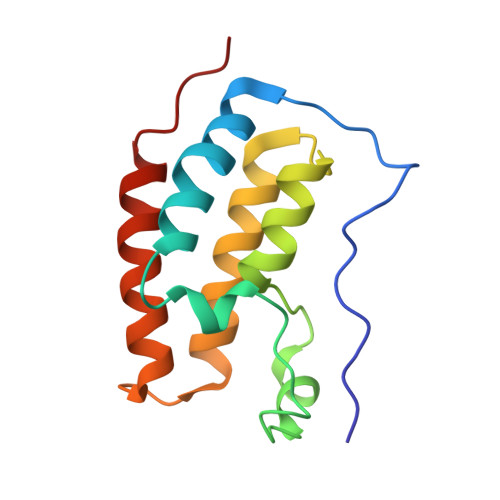Discovery of Epigenetic Regulator I-Bet762: Lead Optimization to Afford a Clinical Candidate Inhibitor of the Bet Bromodomains.
Mirguet, O., Gosmini, R., Toum, J., Clement, C., Barnathan, M., Brusq, J., Mordaunt, J.E., Grimes, R., Crowe, M., Pineau, O., Ajakane, M., Daugan, A., Jeffrey, P., Cutler, L., Haynes, A., Smithers, N., Chung, C., Bamborough, P., Uings, I.J., Lewis, T., Witherington, J., Parr, N., Prinjha, R., Nicodeme, E.(2013) J Med Chem 56: 7501
- PubMed: 24015967
- DOI: https://doi.org/10.1021/jm401088k
- Primary Citation of Related Structures:
4C66, 4C67 - PubMed Abstract:
The bromo and extra C-terminal domain (BET) family of bromodomains are involved in binding epigenetic marks on histone proteins, more specifically acetylated lysine residues. This paper describes the discovery and structure-activity relationships (SAR) of potent benzodiazepine inhibitors that disrupt the function of the BET family of bromodomains (BRD2, BRD3, and BRD4). This work has yielded a potent, selective compound I-BET762 that is now under evaluation in a phase I/II clinical trial for nuclear protein in testis (NUT) midline carcinoma and other cancers.
Organizational Affiliation:
Centre de Recherches François Hyafil, GlaxoSmithKline R&D , 25 Avenue du Québec, 91140 Villebon-sur-Yvette, France.
















